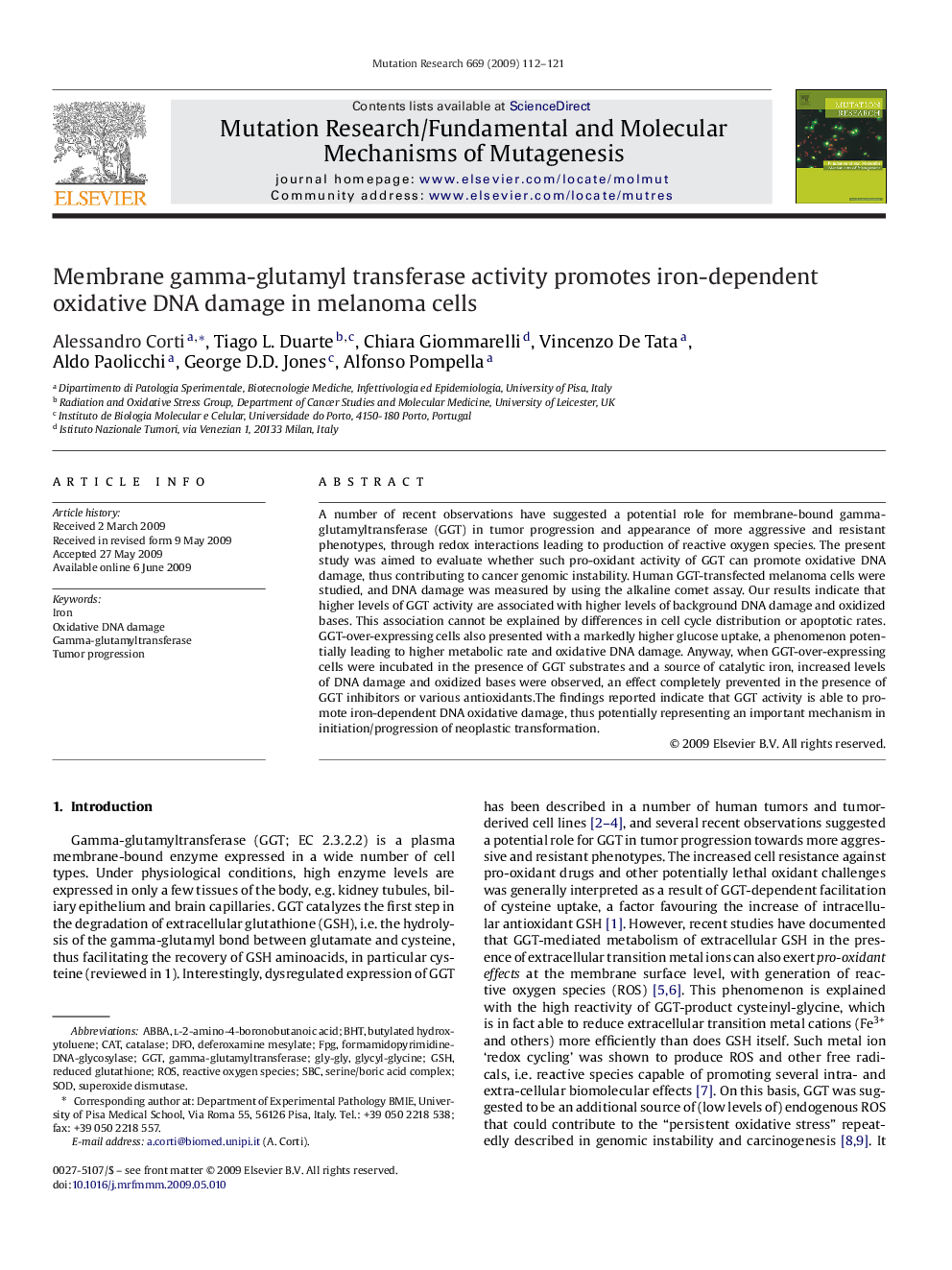| Article ID | Journal | Published Year | Pages | File Type |
|---|---|---|---|---|
| 2146960 | Mutation Research/Fundamental and Molecular Mechanisms of Mutagenesis | 2009 | 10 Pages |
A number of recent observations have suggested a potential role for membrane-bound gamma-glutamyltransferase (GGT) in tumor progression and appearance of more aggressive and resistant phenotypes, through redox interactions leading to production of reactive oxygen species. The present study was aimed to evaluate whether such pro-oxidant activity of GGT can promote oxidative DNA damage, thus contributing to cancer genomic instability. Human GGT-transfected melanoma cells were studied, and DNA damage was measured by using the alkaline comet assay. Our results indicate that higher levels of GGT activity are associated with higher levels of background DNA damage and oxidized bases. This association cannot be explained by differences in cell cycle distribution or apoptotic rates. GGT-over-expressing cells also presented with a markedly higher glucose uptake, a phenomenon potentially leading to higher metabolic rate and oxidative DNA damage. Anyway, when GGT-over-expressing cells were incubated in the presence of GGT substrates and a source of catalytic iron, increased levels of DNA damage and oxidized bases were observed, an effect completely prevented in the presence of GGT inhibitors or various antioxidants.The findings reported indicate that GGT activity is able to promote iron-dependent DNA oxidative damage, thus potentially representing an important mechanism in initiation/progression of neoplastic transformation.
